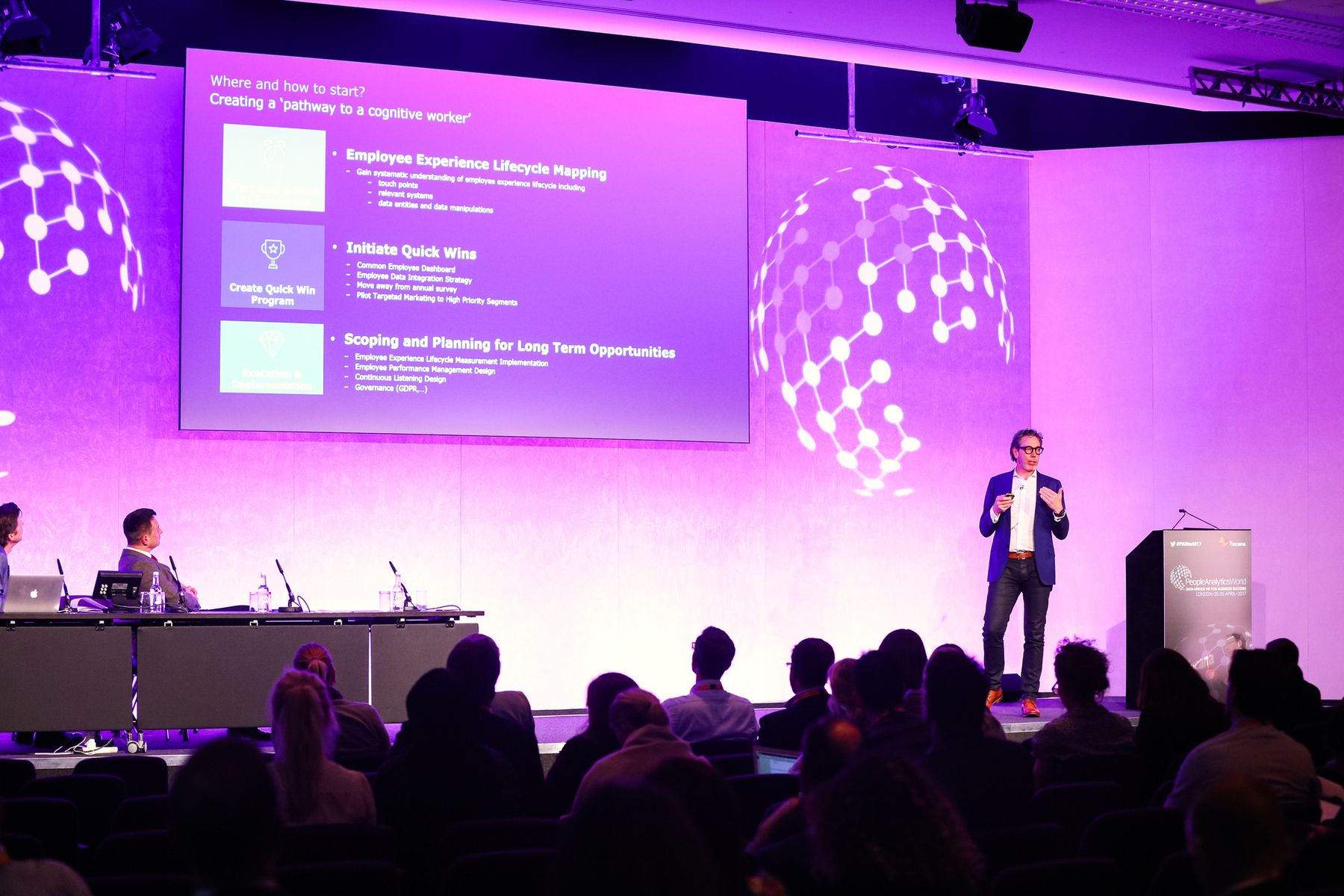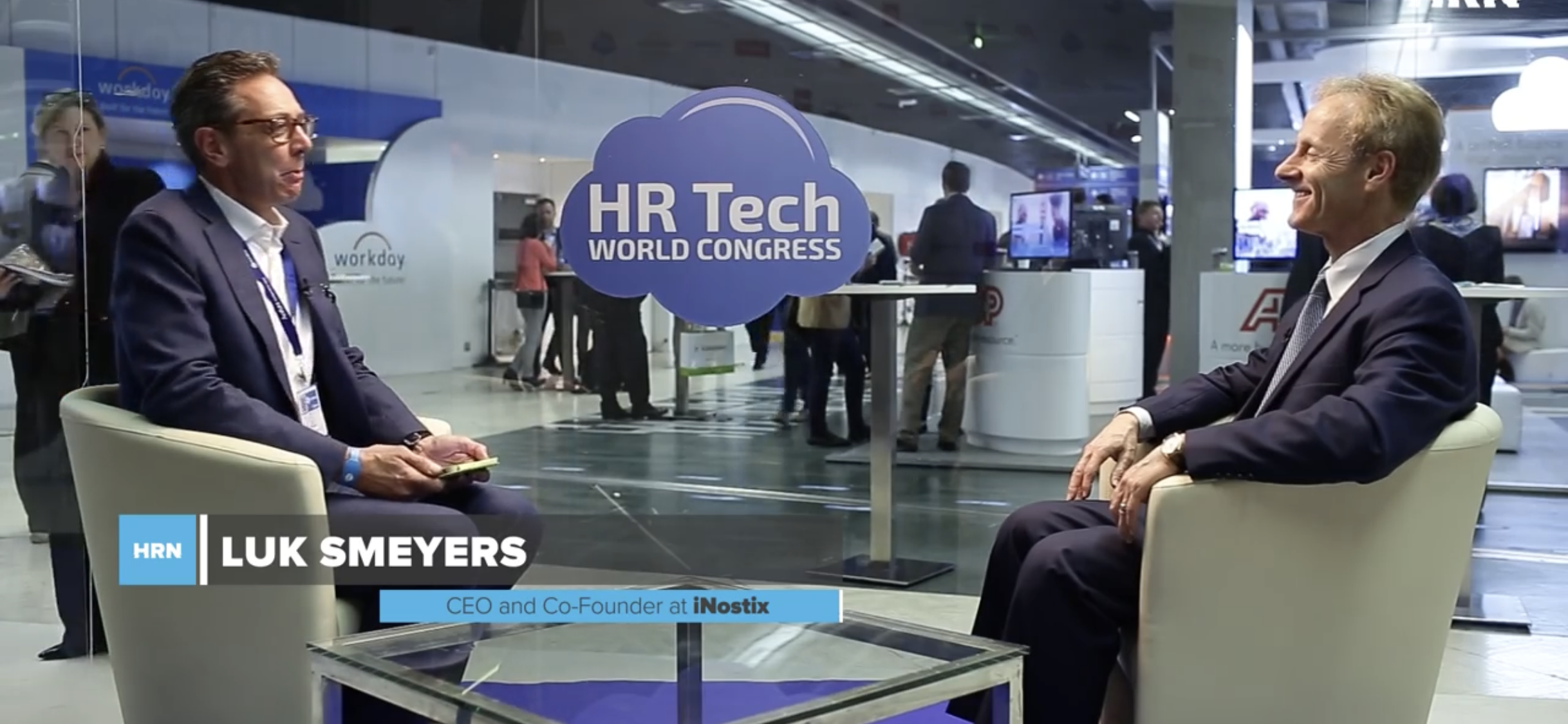
80 Quotes That Could Change You Into A Better Consultant
.jpg?width=56&name=francescorizzato8%20(1280px).jpg)
Challenge your thinking about the consulting profession!
Every Monday morning, I am sharing a consulting-related quote on Linkedin to start the new week. You might get quotes thrown at you, written by the same old famous people.
These quotes reflect years of passionate thinking about the consulting profession and span one year of writing.
I've mixed my own quotes with carefully selected quotes from experts I admire and you may never have heard of.
Let the inspiration be with you!
1. Marketing in consultancy is NOT about sales. Marketing isn’t about pushing a product or service. Instead, marketing is about sharing your knowledge and providing something of authentic value to your clients.
2. Guy Kawasaki inspired me to become a baker instead of an eater: 'Eaters want a bigger slice of an existing pie, bakers want to make a bigger pie and share it with others'. Ever since then, this concept has been my guiding principle in consulting.
3. Putting in the effort toward creating valuable content gave me the privilege of becoming a ‘visible authority’ globally. It didn’t happen overnight. It took a lot of hard work, a structured approach, and a laser-sharp focus.
4. Openly sharing all my learnings has enabled me to create consulting opportunities that I would not have had otherwise. Even in a deep crisis, there's always opportunity. As long as you can get into a helping/sharing instead of a selling mindset.
You don't lose what you know when you share your knowledge. Unlike physical goods, knowledge is non-rival, meaning its value doesn't decrease when it's shared. (From the book: 'Peak' by Anders Ericsson and Robert Pool)
5. Content-driven visibility is the only thing that is going to make you stand out in a crowded and very competitive consulting world. Now even more than before! The more you open up, the more your clients and prospects can relate to you as a consultant.
6. For more than 10 years, I was consistent and persistent in building my digital presence. I wrote close to 150 case studies, articles and columns. My ultimate writing focus: ‘What knowledge did I acquire that would be valuable to share?’ Experts write.
7. Reframing your head from ‘selling’ to ‘helping’ gives you a better mental guiding principle. Not only does this result in better content, but it also makes it easier for most consultants to embrace the marketing aspect in consulting.
8. Your consulting expertise is probably not truly exceptional but YOU certainly are. Be yourself. It’s really that simple!
Make YOU part of your service. Inject what’s unique about the way YOU think, what YOU sell, how YOU sell it, how YOU support it, how YOU explain it, and how YOU deliver it. Competitors can never copy the YOU in your service! (Ali Mese)
9. Consulting IS marketing: marketing is not separate from you, as a consultant. A good consultant is a good marketer of his or her expertise.
10. Keep your audience at the forefront of your mind and your goals, and use your unique story to show them how they can implement what you’ve learned to achieve similar results. That's what I did all those years.
11. Educate your buyers/clients, share best practice with them, tell them what to look out for, give them valuable tips on how to achieve success, demonstrate how you’ve helped others in their shoes. Share your expertise. Share. And share again.
 (Picture: Opening keynote at the famous Tucana People Analytics Conference in London)
(Picture: Opening keynote at the famous Tucana People Analytics Conference in London)
12. If you are always saying ‘Yes’ to your clients, you’ll end up engaging in far too many activities, and you won’t have the time you need to dedicate to your top priorities, deepen your expertise in your niche, and build authority.
13. Your ego is detrimental to narrowing your positioning, focusing on your single biggest mastery, and refusing all other inadequate work.
14. Your fear of narrowing your consulting positioning is the fastest way to becoming commoditized as a consultant.
15. In my early consulting years, I (also) struggled to say ‘No’ because it felt like surrender. Every new opportunity felt like an attractive business challenge I needed to crush.
16. How the heck can you ever be a credible expert if you are piggy-backing on all sorts of expertise domains? When a consultant covers multiple domains, it’s impossible to establish himself as an expert in any of them.
Your narrow positioning is an exercise in irrelevance. The more irrelevant you become to non-ideal prospects by turning your positioning away from them, the more relevant you become to your chosen target clients. But that requires courage and discipline. (David C. Baker)
17. In order to better connect with your clients (both off- and online), you have to niche down and demonstrate that you’re an expert in a single, narrow area.
18. Consulting clients are searching for subject matter experts and trusted advisors to help solve their problems. Clients have more options today than ever before - there are more consultants and experts and advisors than there ever have been in the past and buyers can find anything in seconds.
19. In a way, Google is encouraging us to become more and more specialized in order to become and remain relevant.
20. Most consultants don’t really understand that saying ‘No’ is the biggest force for building their business. Instead of striving for variety (consultants love the variety!), focus on building the deep and unique competence that clients are looking for and are prepared to pay a premium for.
21. The biggest authorities in the world relentlessly say ‘No’ in order to protect and maintain their narrow positioning.
The difference between successful people and very successful people is that very successful people say no to almost everything. (Warren Buffet)
22. You need to clearly define your ideal client profile, and thoroughly discuss this with potential clients upfront before saying ‘Yes’ to collaborating.
23. I am convinced that commoditization of consultancy is already happening at high speed and will put us all at risk if we remain afraid of specializing (thus, afraid of saying ‘No’ to ill-suited opportunities).
24. Narrow down microscopically to grow your authority (and your consulting business). This seems like a huge contradiction for many consultants.
25. Consultants ask me: how am I supposed to grow by doing less? The answer: saying ‘No’ to 95% of things will empower you to say ‘Yes’ to only the right things and, as a result, massively deepen your expertise and carve out time to strive for smart visibility in the market.
Stick to your segment. Focus is your friend. You want to be known as a dominant and consistent voice in your industry (Tom McMakin)
26. In a world full of opportunity, we need to overcome our deep-rooted need to respond to everything.
27. To be honest, I was afraid of missing out on ANY opportunity - even the wrong and low ticket ones - because saying ‘No’ would have felt like surrender.
28. I’ve seen many consultants fear to say ‘No’ to ill-suited opportunities in order to please a client (and/or earn an income/revenue), compromising their market credibility and ultimately seriously compromising their future consulting growth.
29. As consultants, we need to be ruthless in discerning what is important and what is just noise.
30. Start loving the boredom of consistency and repeatability. It’s the backbone of your authority — and your business. Through the (boring) repetition, you will learn the deeper patterns, challenges, risks, and solutions that 99% of your competition will never know, because they weren’t willing to put in the work.
Better to be a big fish in a small pond than a small fish in an endless ocean of near competitors. If you can't say you are the largest or best in a category, make your market definition smaller. Shrink the pond until you dominate your niche. (Tom McMakin)
31. Most consultants struggle to hone in on their expertise and build a unique niche in order to stand out as an expert in a market or expertise domain because it’s a scary exercise.
32. Building a unique consulting niche requires a lot of self-confidence and guts to turn that narrow positioning into a compelling business model.
33. The fear to narrow your expertise domain is the fastest way to becoming commoditized as a consultant.
34. At the end of the day, your ego can become the biggest enemy to your consulting success.
Big egos in consulting can’t say ‘No’ because they are more in love with opportunity than with deepening their expertise. (David C. Baker)
35. Many consultants struggle to translate their expertise into an easy-to-understand, credible message.
36. Without a clear message, a consultant can never get the right connection with their target clients, and it leads to poor relevance and visibility in Google on top.
37. Clients are searching for subject matter experts and trusted advisors to help solve their problems. And those clients have more options today than ever before - there are more consultants and experts and advisors than there ever have been in the past and buyers can find anything in seconds.
If you don't know what to say, you aren't an expert. If you don't know how to say it, you haven't practiced enough. If you find too many audiences when directing your writing, you haven't focused enough. (David C. Baker)
38. Instead of striving for variety (consultants love the variety!), focus on building the deep and unique competence that clients are looking for and are prepared to pay a premium for.
39. Most consultants don’t really understand that saying ‘No’ is the biggest force for building their business.
40. Saying ‘No’ to 95% of things empowered me to say ‘Yes’ to only the right things and, as a result, massively deepened my expertise and carved out time to develop smart visibility in the market.
41. Many years ago, I told myself: “Luk, you either specialize and stand out in the very crowded consulting market or you’d better start looking for a regular job”.
We must simply choose to take control, first by specializing and shifting the power back from the client toward us, and then we can begin to shape our future as consultants. (Blair Enns in his book: 'Win without pitching')
42. I kept challenging myself all those years to say ‘NO’ to anything that fell outside of my narrowly positioned area of expertise. I stopped chasing the next client, I accepted that I might earn less. In return, I was able to free up time to grow my business on the back of my earned visibility in my market.
 (Picture: interviewing global influencer Josh Bersin at the HR Tech World Congress in London)
(Picture: interviewing global influencer Josh Bersin at the HR Tech World Congress in London)
43. If you don’t take the time to market your consulting business, you won’t have a business to market soon!
44. In a world where buyers of consultancy services expect an ‘easy to find’, Amazon-like 5-star rated expert profile, how are you going to climb to the top of those search results?
45. If you don’t invest a substantial amount of time in positioning yourself as a visible authority NOW, then in 3-5 years, nobody will come across your expertise on the internet.
Don’t forget that your experiences, your communications style, and your unique perspectives all allow you to be different than everyone else in your industry. (Michael Stelzner, Social Media Examiner)
46. Most consultants are afraid that if they niche down and say ‘No’ to potential clients, they are going to lose business and miss out on new opportunities.
47. Rather than being laser sharp in their consulting positioning, most consultants are trying to show expertise in many areas and take on any remotely related opportunity that comes their way. This not only leaves them spread thin and disorganized but it also totally confuses their clients.
48. If you keep saying ‘Yes’ to everything because you’re either scared of losing opportunities or you just want to be nice to your existing clients, you’ll never have time to structurally grow your business.
49. At least 95% of the consultants I work with, know that saying yes to everything (basically selling time for money) is not the best way to become proud of their work, and it’s burning them out in the long run.
50. I am always surprised by how many consultants claim to be an expert but consciously avoid publicly declaring that – the ultimate 'narrow down acid test' – on their website or profile page.
51. Almost every consultant I meet has some kind of (big or small) ambition to become considered an expert. But most of them also consider business development as ‘something they will do in between two projects’ (or something to ‘delegate’ to marketing in larger consultancy firms).
52. If you consider marketing as ‘beneath you’ or as an annoying distraction on top of the ‘real work’, you won’t get anywhere in your consulting business development these days.
Business development is not an event and it's not a 'sometimes' thing. It is a process that I spend time on every day. If you want your firm to be consistently successful, you have to make a personal commitment to working at it each day. (Tom McMakin)
53. If you want to be serious about growing your consulting business and starting to attract your ideal clients in a more consistent and predictable way, you will have to get comfortable with online marketing.
54. If you’re like most of the consultants, you’re either spending WAY too much time with useless (manual) marketing (e.g. going crazy about junky sharing & liking on social media channels) - or, conversely, none at all.
55. Most consultants I know are pretty active on Linkedin but unfortunately in a totally ineffective way! They believe they do a lot but it doesn't drive business at all.
 (Picture: with a sophisticated approach, I get 40% of all traffic to TheVisibleAuthority.com from LinkedIn!)
(Picture: with a sophisticated approach, I get 40% of all traffic to TheVisibleAuthority.com from LinkedIn!)
56. It’s my deepest conviction that if you don’t install efficient, repeatable, and consistent marketing systems, you’ll get swept away by the many other consultants and consultancies who are starting to master online marketing.
57. Publicly declaring your expertise helps you tremendously with positioning, focus, saying no to other work, developing the right marketing messaging & content and attracting the ideal client, to name a few.
58. Whether you like it or not, content management is a top priority to avoid becoming irrelevant as a consultant. Authorities write. Period.
59. My core content has always been based on my experiences in the trenches of consulting: case studies, lessons learned, how-to articles, interviews with key stakeholders/clients, etc. I did the writing myself and outsourced the publishing and social sharing tasks.
If we are not seen as more expert than our competition then we will be viewed as one in a sea of many, and we will have little power in our relationships with our clients and prospects. (Blair Enns)
60. There are many common misconceptions about how much time it actually takes to develop content, and the bottom line is: it takes FAR less time than you think.
61. As a consultant, you will only appear in Google’s top hits if Google considers you to be relevant.
62. In fact, Google is constantly encouraging consultants to get more and more specialized and does this by emphasizing the importance of Expertise, Authoritativeness, and Trustworthiness in its E.A.T. search algorithm.
63. How are you going to raise your game to become more relevant for Google? Answer: by consistently producing high-value content about your work, your approach, your deep expertise, your case studies (successes and failures), your research findings, etc.
 (Picture: how are you going to climb to the top of Google search results as a consultant?)
(Picture: how are you going to climb to the top of Google search results as a consultant?)
64. I have been and still am devoting a considerable amount of time to develop and plan my content. It has been and still is a key driver of trust and credibility building and, as a result of course, of business growth.
65. My future content will be based on ‘key pain points’ of my current/potential clients and will be written to help them solve specific challenges in becoming visible authorities in their domain.
Our job as consultants is to ensure we are top of mind - the first specialist that a client calls when they need help. (Will Bachman)
66. I am obsessed with organizing my work to free up time for business development, and I am on a ruthless search for productivity gains, systems, and processes. People are always surprised when I tell them about ‘having a time strategy’.
67. I’ve always set myself the target of creating actions that will lead to at least a 20-30% in available time to devote to my content marketing and business development.
68. I am damned serious when I say that 50% of my past success as a consultant was my state of mind to be able to free-up 20-30% of my time to grow my consulting business.
69. If you really want to develop your consulting business, you will have to get rid of the vicious mindset that tells you ‘I don’t have time to win more clients’ (because the client work comes first).
70. A growing number of consultants have started investing more time to become visible authorities to become more relevant for our new boss, Google. You better get ready for this storm!
71. Without prioritizing your visibility, your consulting work might be at risk in 3-5 years (or even faster)!
72. To develop deep expertise and authority in your domain, you'd better understand the specific pains of your clients and make sure you re-validate those pains regularly (pains evolve!).
The #1 rule for success is focus. Do less. Pick one thing and do it 100%. Don't let anything distract you. Say no. Say no. Say no. (Ev Williams, founder of Medium)
73. When you are under pressure as a consultant to achieve short term financial results, cutting out time for marketing and business development with a long term perspective is not an easy thing to consequently continue. But if you don't focus on it, it’ll kill your growth in the long run, no doubt!
74. I've experienced first hand that many consultants are struggling to translate their (technical) expertise in a message that is easily understandable to their target audience.
75. Developing ‘the right voice’ creates a much deeper connection with your potential clients as they will understand what and who you are standing for.
76. As a consultant, you need to fully grasp the details, the background, the context, the relationships, the characteristics, the frequency, the volume, the typical stakeholders involved, etc. of the critical pains of your target clients (in your narrow market). If you cover multiple expertise areas, that’s totally impossible to accomplish.
77. Today, I am obsessed with 'pattern seeking' as the backbone of my expertise and I spent a substantial amount of time with my current clients to help them with understanding this critical component of authority progress.
There are all sorts of things you conventionally do as a consultant that might give you a comfortable feeling. But I got to tell you, in a world where everybody is one click away, you are not safe anymore. (Seth Godin)
78. I teach consultants to deepen their authority 'by staying upstream' as much as possible: packaging their expertise into 'a strategic system' and to price it as a premium diagnostic service — upstream being strategic versus downstream being operational/implementation support.
79. There's so much learning in in-depth client pain validation interviews. You just can't overlook the (evolving) needs of your future buyers when developing your consulting offering, expertise and authority.
80. If consultants don’t do structured client pain validation on a permanent basis, I consider them as ghost riders, at risk of becoming irrelevant.
Expertise is the only valid basis for differentiating ourselves from the competition. (Blair Enns)
Conclusion
These quotes reflect several years of thinking about the consultancy profession and span one year of writing. I hope some of the quotes will find a little place in your brain (or heart).
It has always been my dream (and aspiration) to inspire people with the work I am doing, hopefully these quotes can teach you to become a better consultant.
If you let them.
Interested in receiving all my learnings to become a better consultant? No spam, no BS. Pure teaching! Subscribe to my newsletter.
.jpg?width=66&name=francescorizzato8%20(1280px).jpg)
Luk’s extensive career in the consulting business, which spans more than 20 years, has seen him undertake a variety of influential positions. He served as the European CHRO for Nielsen Consulting (5,000 consultants in the EU), founded iNostix in 2008—a mid-sized analytics consultancy—and led the charge in tripling revenue post-acquisition of iNostix by Deloitte (in 2016) as a leader within the Deloitte analytics practice. His expertise in consultancy performance improvement is underlined by his former role on Nielsen's acquisition evaluation committee. After fulfilling a three-year earn-out period at Deloitte, Luk harnessed his vast experience in consultancy performance improvement and founded TVA in 2019. His advisory firm is dedicated to guiding consulting firms on their path to becoming high-performing firms, drawing from his deep well of consulting industry expertise and financial acumen.

